Goodbye Babel Fish, Hello Bing Translator
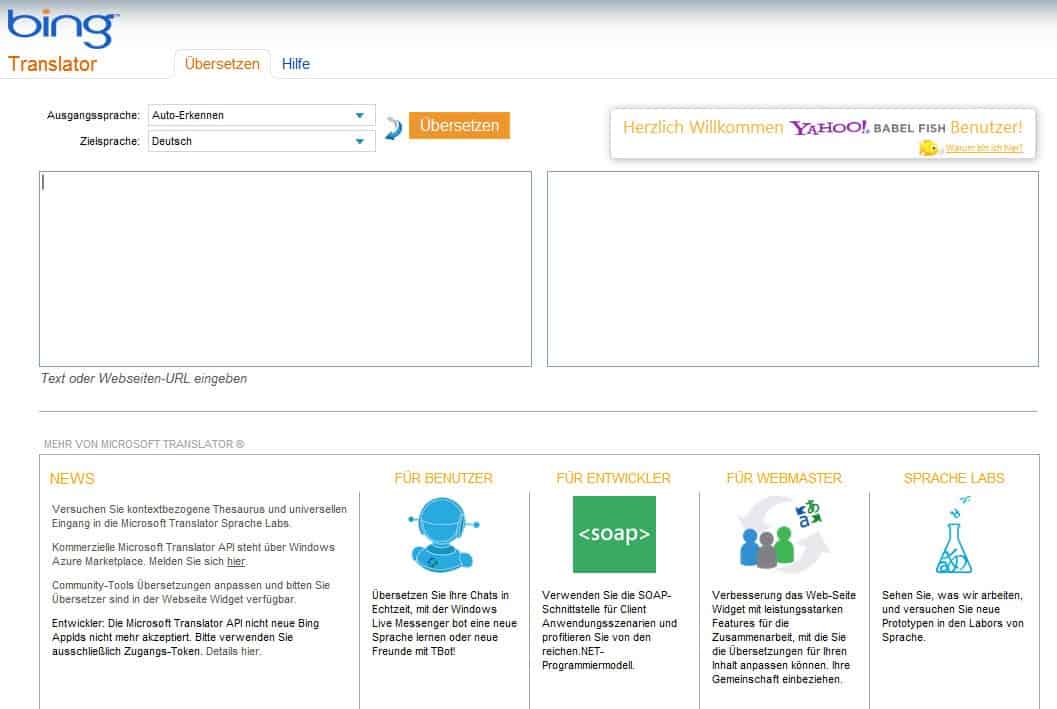
The long standing online translation service Babel Fish is no more. The web application that was launched in 1999 changed owner twice, first in 2003 when it was bought by AltaVista, and then again in the same year when Yahoo bought the AltaVista company. Babel Fish had two core features: first a text translation feature that could translate up to 150 words into a different language, and then a web page translation feature that would translate a page on the Internet into a different language.
When you compare the offering to what Bing Translator offers, you will notice that the switch to Microsoft could feel like an upgrade to some users of the Babel Fish service, at least when it comes to the functionality provided by the service.
Babel Fish users who are trying to access the website of the service will notice that they are now automatically being redirected to the Bing Translator website where they are greeted with a welcome message that they can click on to read up on the transition.
One of the most interesting features of Bing Translators is the service's side-by-side feature that you can use to display the original and the translation side-by-side in the browser window. This is excellent for users who are not fluent in a language, but do understand it to some degree, as it is now possible to compare the original with the translation to assess the translation's quality (and check if a translation is thorough).
Microsoft notes that the translation technology used by Yahoo's Babel Fish service is different from the "statistical machine translation technology" that is powering Bing Translator. This is why users may notice differences in translations when the outputs are compared, and why some users have stated that Bing's translations are inferior, while others have stated that they are superior when compared to Babel Fish.
Yahoo has now released an official statement about the closing of the Babel Fish translation service. It is however likely that it is part of the company's restructuring.
Advertisement
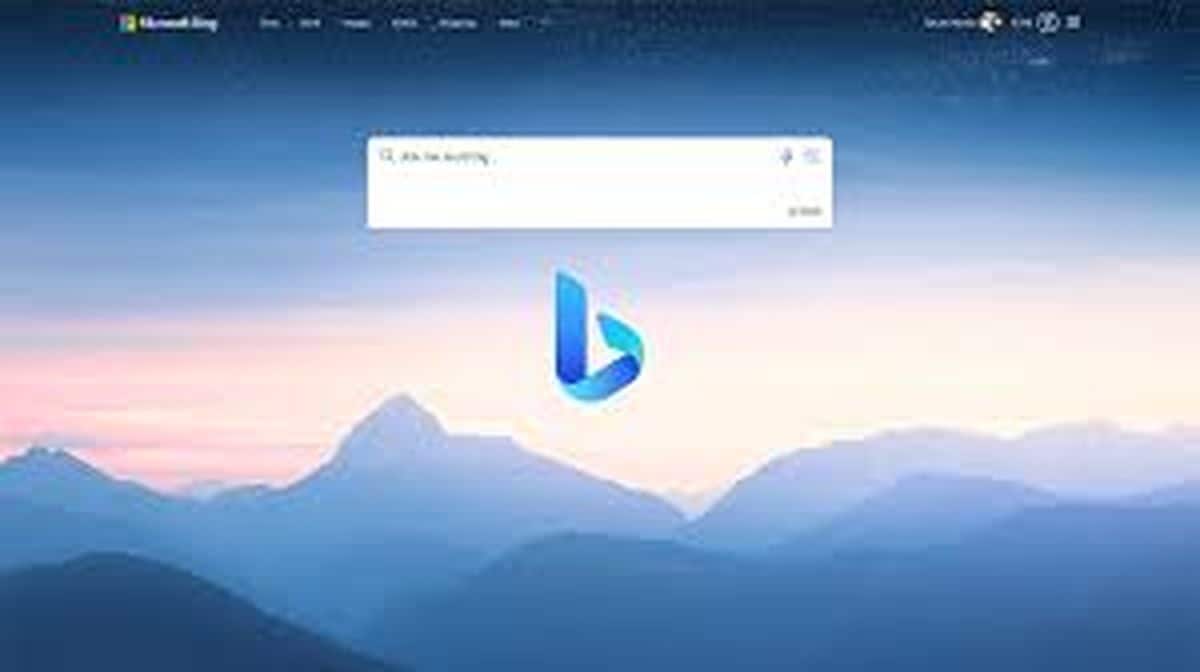


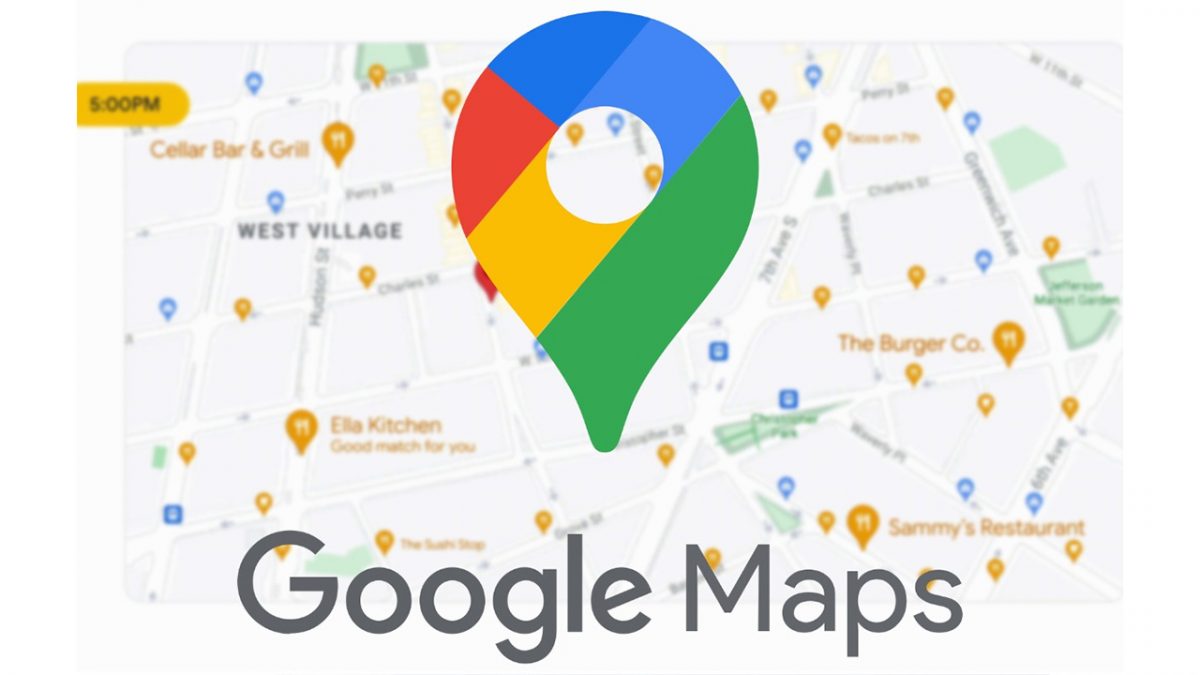

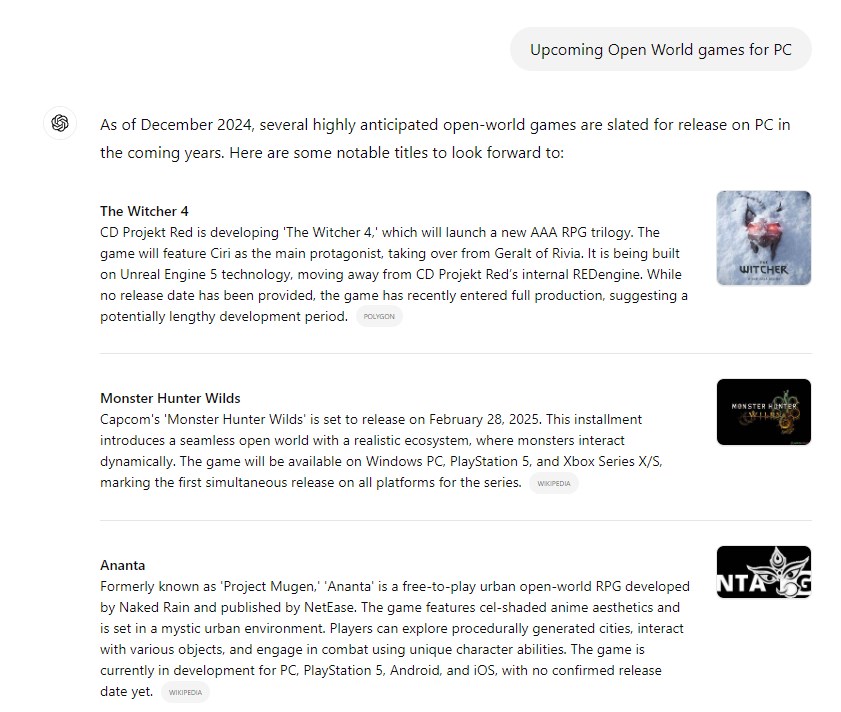





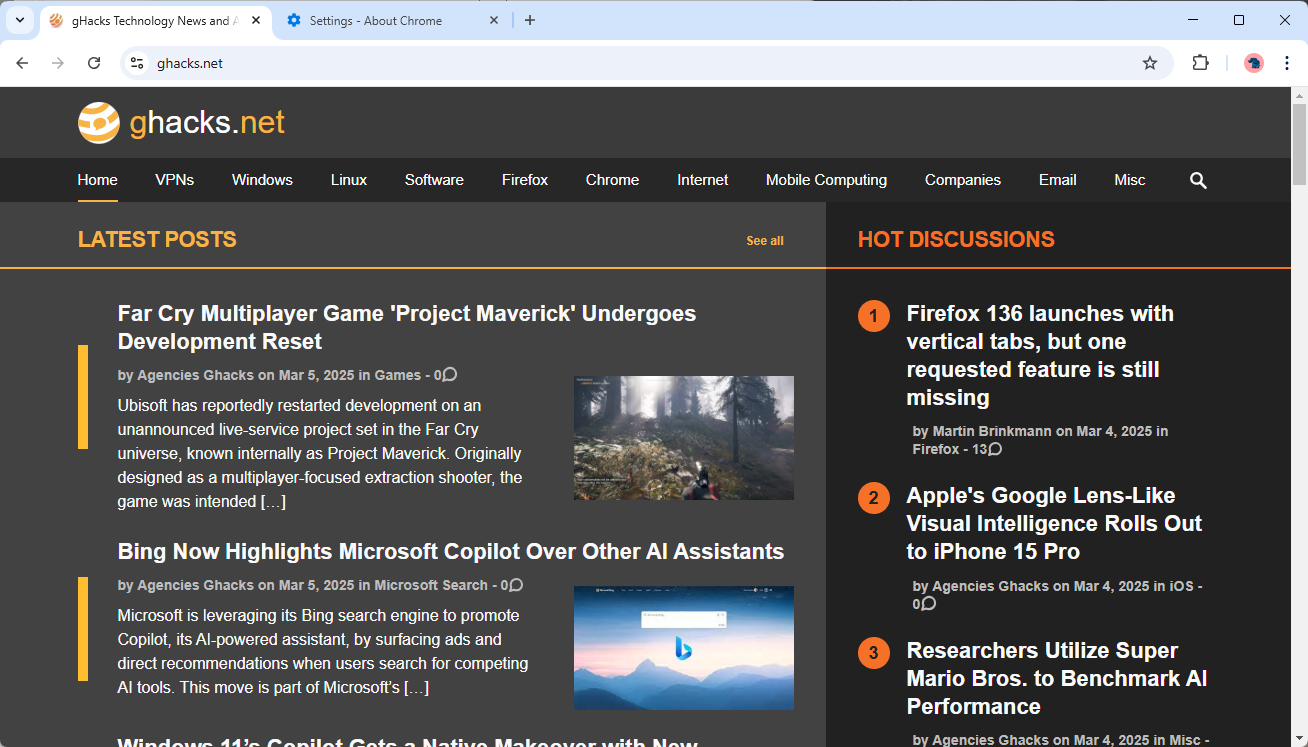


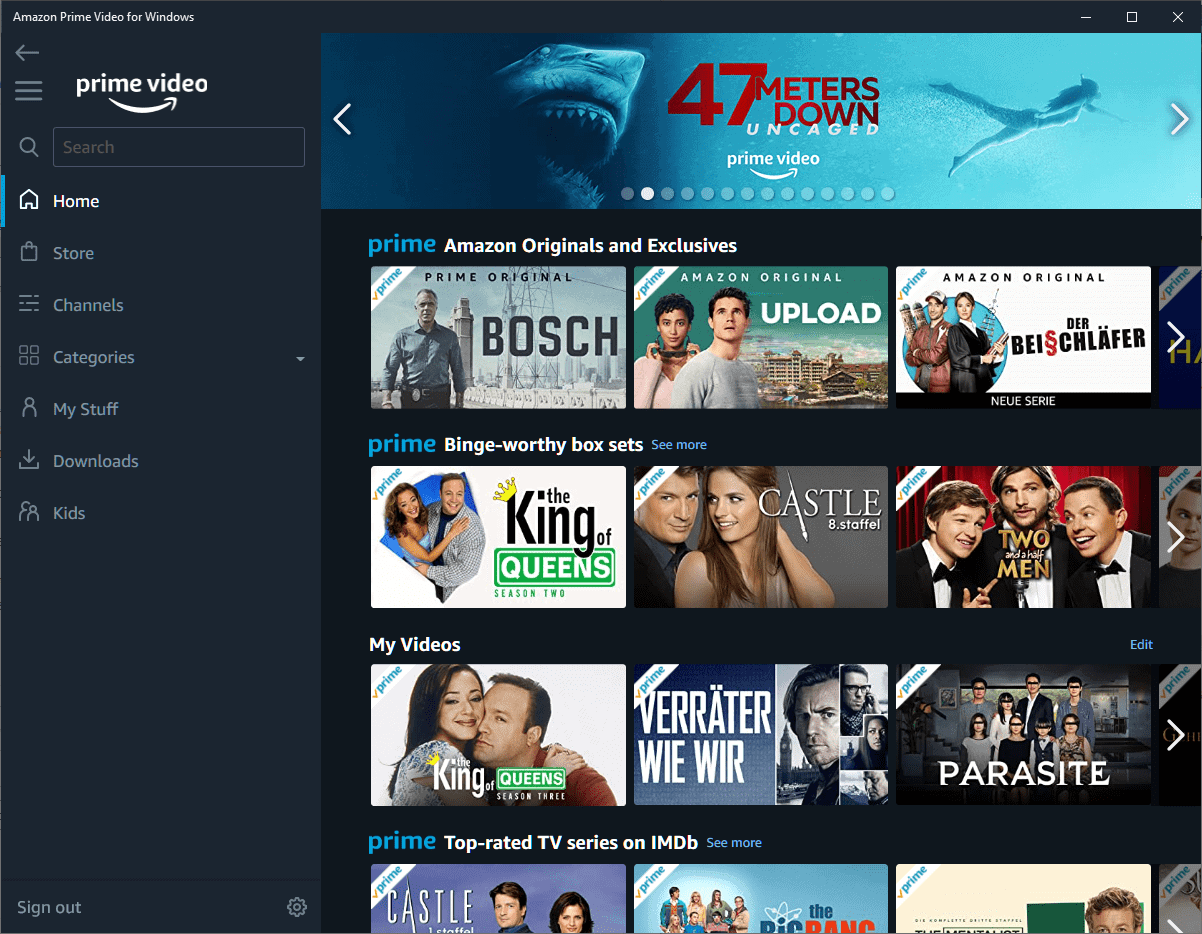





Today (5/16/18) Microsoft got rid of the side-by-side view in translator, which I’ve used on average 30 minute per day for 5 years.
Babelfish was better even than Google Translate, and now it’s as good as Internet Explorer. I wonder if Mozilla will make an online tranlator? Their browser is certainly a huge impovement on Micro$***’s poor offering!
Just tried the Bing translator. It 404’d when I hit the translate button.
Maybe the author of the article should worry less about translating from another language and work more on mastering English…
“Babel Fish had to core features: first a text…”
Try “two core features”…
There’s nothing worse than poorly written articles due to laziness (ie no proof reading)…
Oh, and the over use of elipses…
You mean ellipses?
Complete fail for Bing in translating a French news site. I used to use BabelFish for this task without much trouble. Also tried a few basic French to English word translations on Bing and only had about a 60% success rate. BabelFish didn’t always work, but it had a higher success rate. So far, I’m not liking the auto-switch to Bing at all :-(
I tried using Google to translate to-from Korean and the results were nearly incomprehensible. Babel Fish did a much better job. I never thought to try Bing.
^ 1+
Im starting to like this over google translate
Actually I’ve just compared translations of a few different paragraphs from English to French with both Bing and Google translators and the advantage was for Bing, far ahead. Seems very impressive. Both word/text and page translations are very good for the job itself and as a pleasure for the interface which includes several options. Nice work.
I think — this is my case anyhow — we trend to take habits, stick on what works without seeking for more, better elsewhere. Google products is a perfect example when we rely on services/applications which are very well done (Google) but which should not blind us to alternatives sometimes as well rendered, sometimes even better.
There’s always Google Translations and SDL Translations.